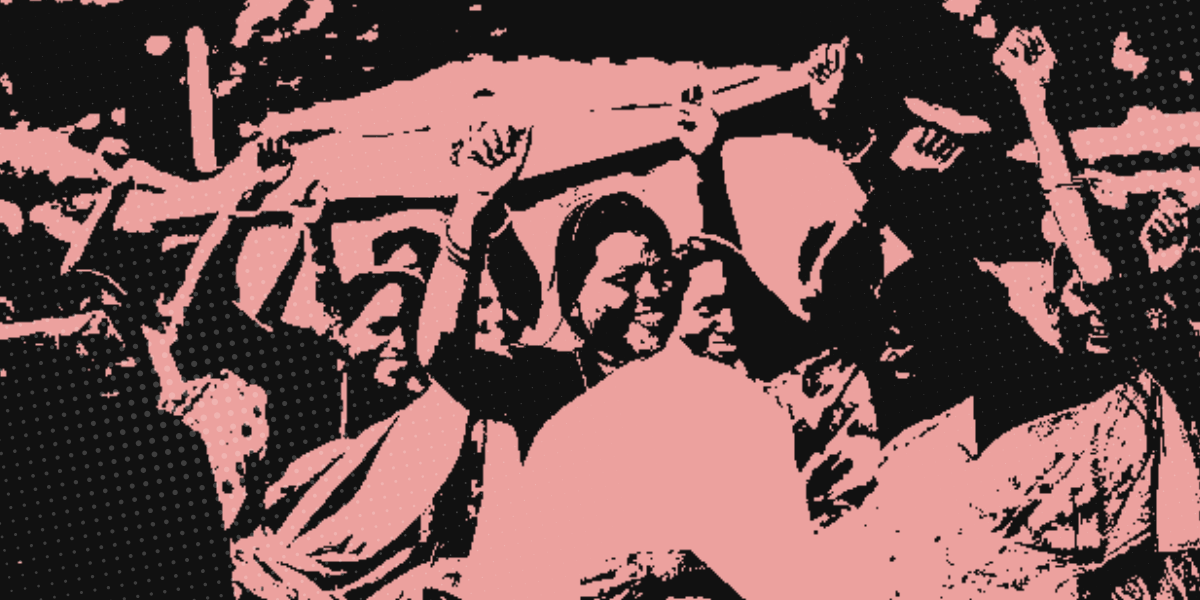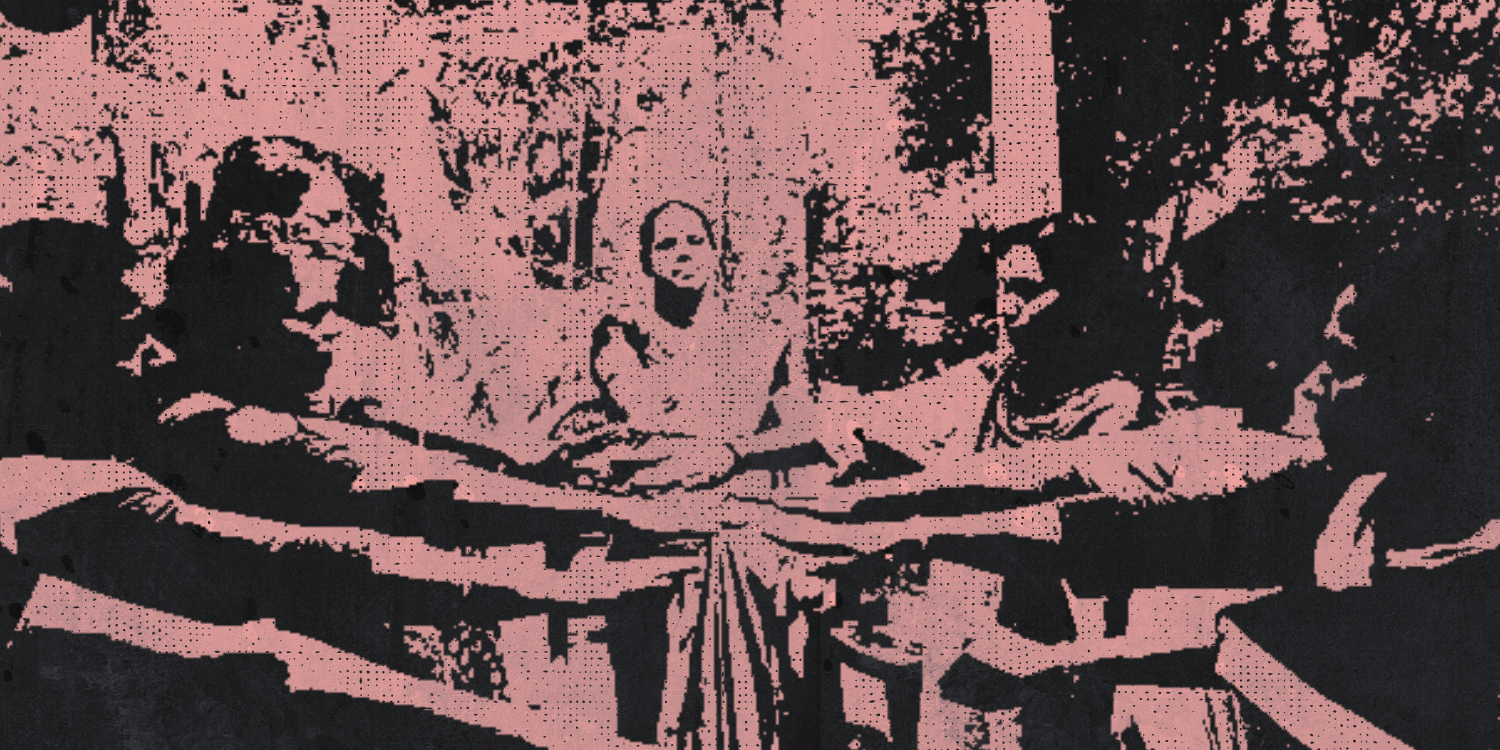Abstract
Street vending is an integral part of the urban economy in India and other Global South regions. This article focuses on the challenges street vendors face in Bodh Gaya, Bihar, after its UNESCO World Heritage site designation in 2002. Examining the period from 2002 to 2023, including significant events like the heritage status, the Mahabodhi temple bomb blast in 2013, and the implementation of the Street Vendor Act in 2014, it explores how these events shaped street vending in the town.
Despite Bodh Gaya’s aspirations to be ‘world-class,’ street vendors endure precarious livelihoods and the impact of beautification efforts by local authorities and international pressures. The article contends that securing street vendors’ livelihoods necessitates proactive protections against evictions and bullying.
Keywords: Street vendors, World-Class city, Buddhism, World Heritage Site, Bodh Gaya
On 27 February 2020, the President of Myanmar, Win Myint, visited the Mahabodhi Temple (Ministry of External Affairs, 2020). Like any VIP visit to Bodh Gaya, the temple was surrounded by chaos as the town tried to bring itself in order. Street vendors were specifically identified as the source of this disorderliness. The shops (temporary structures) were shut and covered, and mobile vendors were shouted away by police and local authorities. Street vendors, though essential features of the town’s morphology and economy, are considered hindrances in the making of the ‘world-class’ Bodh Gaya (Rajput and Sharma, 2021). As a researcher involved with Bodh Gaya since 2018, I have witnessed numerous VIP visits to the town, consistently accompanied by the closure of temple-adjacent shops and temporary eviction of vendors.
Since the United Nations Educational, Scientific and Cultural Organization (UNESCO) world heritage label in 2002, Bodh Gaya’s importance as the birthplace of Buddhism has been re-asserted (UNESCO, 2023). With the increase in the footfall of pilgrims/tourists, especially in the last twenty years (since 2000), the tourism-based economy has thrived in the town. Vending has emerged as an important commercial activity for the residents of Bodh Gaya. According to the 2010 Support Program of Urban Reforms survey, around 2,550 vendors were operating in Bodh Gaya (Urban Development and Housing Department, 2011). Majorly, three kinds of vending activities are identified, namely, the chowki or a shop on the footpath without any covering, which constitutes the highest proportion of vendors, a gumti or a kiosk, and a thela or a mobile shop on a handcart. These vendors sell worship necessities such as flowers or candles and souvenirs.
This article examines how street vending has changed over the two decades (2002-2022) since Bodh Gaya was labelled as a world heritage site. It sheds light on the challenges faced by vendors in the town. Subsequent sections underscore Bodh Gaya’s significance and specifically examine vendors’ circumstances before and after the 2013 bomb blast.
The Buddha Land: Bodh Gaya
As the auspicious site of Buddha’s enlightenment, Bodh Gaya is a revered agrarian small town of global importance. The town is situated around 13 km from Gaya, another important religious site for Hindus and Buddhists. Bodh Gaya had a prodigious tourist inflow in the past two decades (2000-2020). The number of national and international pilgrims has consistently increased since 2000, barring in 2013 because of bomb blasts in the main temple and between 2021-2022 because of the COVID-19 situation. The pilgrims tally reached more than two million for the first time in 2017, nearly ten times as compared to the beginning of the twenty-first century, i.e., 2000 (Department of Tourism, Government of Bihar, 2023) (Figure 2).
Figure 2: Tourist Inflow (2001-2023 October) Source: DoT (2023)
With the immense tourist inflow, new economic opportunities and challenges have unfolded in the town. Alongside agriculture, the tourism-driven economy, including hotels, guesthouses, and street vending, has gained prominence. Typically spanning four months (November to February), the tourist and pilgrimage seasons witness heightened street vending activities, while the remainder of the year sees vendors transitioning to agricultural or construction work or even migrating to urban centres in search of better opportunities. Based on my interaction with the locals, only a handful have reaped economic benefits from the tourism boom. Most of the residents primarily engage in subsistence agriculture. However, with the dramatic increase in land price and land use change because of the construction of hotels and monasteries in the nook and corner of the town, the traditional agriculture practices are disrupted, exacerbating the livelihood vulnerabilities of the locals.
Pre-2013 Bodh Gaya Bomb Blast
The two-decadal vending story of Bodh Gaya does not begin with the street vendors around the Mahabodhi temple but from the local Mahabodhi shopping complex within the temple premises (lal pathar: red stone). The complex, with 58 shops, was built by state authorities to promote the tourism economy. Notably, the Bodh Gaya Temple Management Committee (BTMC) oversaw 27 shops, the Bihar State Tourism Development Corporation managed 23, while the Bodh Gaya Nagar Panchayat (BGNP) had a more modest count of 8 shops. These establishments served as significant revenue sources for the respective authorities; for instance, the BTMC garnered an annual rent of Rs. 81,000 from its 27 shops until 2013. Besides the shops, over a hundred vendors used to operate in the temple complex.
Since 2002, the shopkeepers and vendors have been threatened with eviction for the demarcation of the sacred temple to establish the authenticity of the heritage site. This action aligns with UNESCO heritage guidelines and the master plans of Bodh Gaya, which include a stipulation for a 500-metre buffer zone around the monument (Rajput, 2023). The joint secretary of the Mahabodhi Society of India, Ven. R. Sumiththananda Thero expressed his experience when he first visited Bodh Gaya in 2007. He recounted, “It was my dream to visit Mahabodhi temple and Bodh Gaya, but when I reached here there was nothing I imagined about Bodh Gaya as the site where Buddhism originated. This was a very noisy and dirty place, and commercial activities were rampant even in the premises of Mahabodhi Temple” (personal communication, 2020, February 27). Hence, to restore the serenity of the temple, especially because of the international pressure via monasteries, the authorities tried hard to demolish the shops; however, they failed for a decade because of the protests and local politics. Over the course of ten years (2002-2012), authorities issued a succession of notices to shopkeepers, urging them to either relocate or face the sealing of their shops. The shopkeepers appealed against the eviction orders and got short-term reliefs; however, the eviction got postponed every time, yet never cancelled.
On July 7, 2013, a series of bomb explosions occurred within the temple premises. Within the span of an hour, nine blasts occurred, with four taking place within the complex and five within a 500-metre radius (Yadav, 2013). The first blast occurred at 5:45 in the morning, and no one was hurt in the blasts. The state grabbed the 2013 bomb blast in the Mahabodhi Temple premises as an ultimate opportunity for the eviction of the shops and street vendors in the name of security (Yadav, 2013). Naushad Alam, the head of Footpath Union, National Hawker Federation (NHF), narrated to me how the state government removed them within three days of the bomb blast without any arrangement for resettlement. Consequently, most of the vendors remained unemployed for a few months.
Post-Bomb Blast
Since the 2013 bomb blast, Bodh Gaya has become more challenging for vendors. Many of them have not recovered yet. Likewise, a mobile vendor who used to have a small shop in the premises sighed and said, “Bodh Gaya gareebon ke lie nahin hai, [Bodh Gaya is not for the poor]” (personal Communication, 2020, February 28). Vending is strictly prohibited at lal pathar (red stone) on the temple premises. If ever a mobile vendor is caught there, they face harsh treatment, often subjected to physical violence, with the police confiscating their merchandise or occasionally imposing fines.
Post-bomb blast, security enhancement measures include an increase in the height of the boundary wall around the temple premise and the installation of checkpoints with security personnel and high-resolution CCTV cameras. These measures restrict the access of locals to the temple premises. Like many, a shopkeeper just behind the Mahabodhi temple put it, “2013 ke baad se mein ek baar hi mandir gaya hue, hum bachpan me wahi jaa kar khelte the….hamare gaon ka hissa tha (Translated as: After 2013, I visited the temple (the Mahabodhi Temple) only once; we used to play their in our childhood, it was the part of our village (Old Taradih))” (personal communication, 2022, March 26). Hence, the new security regime and restrictive access to the temple premises have produced a sense of insecurity and un-belongingness among the inhabitants of Bodh Gaya.
After the bomb blast, there were extensive protests by the street vendors and locals. Nevertheless, relief came from the supreme court order on the street vendors dated September 9, 2013 in the matter of Maharashtra Ekta Hawkers Union and Others Versus Municipal Corporation, Greater Mumbai and Others. The court held that “all existing street vendors/hawkers operating across the country shall be allowed to operate till the exercise of registration and creation of vending/hawking zones is completed….Once that exercise is completed, they shall be entitled to operate only in accordance with the orders/ directions of the concerned Town Vending Committee” (Maharashtra Ekta Hawkers Union and Others Versus Municipal Corporation, Greater Mumbai and Others, 2013). Later, Shaktiman Ghosh, the general secretary of NHF visited Bodh Gaya and helped the street vendors unite and work for their rights. Bihar’s first vending committee was constituted in the town after the Street Vendor Act, 2014 (Ministry of Housing and Urban Poverty Alleviation, 2014). The committee has seven members, with an executive officer of the BGNP as its head. However, street vendors told me that the committee did not work properly or meet regularly, and they attributed these failures to the bureaucracy and their authoritative nature.
After agitation and negotiation, the BGNP allotted four vending zones, namely, near Royal Wat Thai, known as Buddha Market (119 shops); near Nagar Panchayat (10 shops); behind Birla Temple (seasonal); and supermarket (200 shops). Ambedkar Market was established in 2018 (60 shops situated in front of Mahabodhi temple), which has not been approved by the BGNP. Because of its proximity to the temple, this market is under constant threat of demolishment. During the latest fieldwork (March 2022), the shops were not allowed to open in the Ambedkar market, and the vendors were threatened with eviction by the district administration.
Figure 5 and 6: Ambekar Market and Buddha Market (Source: Ritika Rajput)
The vendor union (footpath union) demands the recognition of the rights of the residents of Bodh Gaya over the city. The vendors should be provided with identity cards, and the Town Vending Committee, whose chairman is the Executive Officer of the Bodh Gaya Nagar Parishad (previously Nagar Panchayat till 2021), should work efficiently. According to the latest Bihar Urban Livelihoods Mission (BULM) survey of the Government of Bihar, only 250 vendors out of 960 surveyed vendors were reported to have identity cards (Urban Development and Housing Department, 2023).
Amidst the looming threat of evictions and police intimidation, the proliferation of new monasteries in and around Bodh Gaya compounds the hardships faced by vendors. These monasteries, engaging in the sale of items, significantly worsen the vendors’ plight. According to one vendor, international tourists and pilgrims tend to favour purchasing items or souvenirs from these monasteries or the hotels where they reside. Regarding facilities, street vendors also often lack access to basic amenities such as toilets and water. This can make it difficult for them to maintain hygiene and can also pose a health risk. In 2017, a few public toilets were constructed along the Mahabodhi Temple to Thai Monastery Road, but these were never operationalised because of the unavailability of water (Fieldwork interviews).
World Imaginaries and Contested Aspirations
Bodh Gaya’s global significance as a birthplace of Buddhism shapes its world imaginaries. These world imaginaries include aspirations to develop the town as the International Buddhist Heritage or World Buddhist Centre in the planning documents and religious institutions. For example, the City Development Plan 2006 envisioned Bodh Gaya as a “world Buddhist Centre, a centre of learning, a green, healthy, humane town with equitable opportunity for all and a pilgrimage destination ” (Housing and Urban Development Corporation Limited [HUDCO], 2006). Or, Late Ven. U. Nyaneinda of Burmese Vihara stated, “Like Mecca for Muslims, Bodh Gaya for Buddhists should be developed as the Buddha Land” (personal communication, 2020, February 27). The Executive officer of BGNP put it, “Model which is inspired from ‘Vatican City’ will be deployed in Bodh Gaya, Mahabodhi Temple, the heart of Bodh Gaya, must be visible from all the directions in and around Bodh Gaya” (personal communication, 2020, February 28). However, this idea of creating a ‘Vatican’ is not unfamiliar to Bodh Gaya. In 1993, Sri Lankan President Ranasinge Premadasa avowed to elevate Bodh Gaya to the status of Jerusalem or even the Vatican (Ahmed, 1993). Such speculations about the new plan can be assessed in all the interviews with locals. The locals and vendors, especially those who are residing between the bank of the Niranjana River and the Mahabodhi Temple, are in fear that sooner or later, the state will oust them from their land to create the ‘world-class Bodh Gaya’ (Kumar, 2019).
Even though many vending zones have been demarcated, constant harassment, fear of eviction, and difficulties during the VIP visits are still part of their livelihood. The head of the Footpath Union, delineated the vision of vendors for Bodh Gaya as: “Bodh Gaya should look beautiful but not at the cost of locals. Without including the locals, it is impossible to beautify Bodh Gaya. For smart Bodh Gaya, there is a need for a smart vendor. If the residents of Bodh Gaya are happy, Bodh Gaya will become beautiful automatically. There is a high need to focus on locals” (personal communication, 2020, March 7).
The inevitability of the street vendors in the urban economy needs not only recognition, as the Street Vendor Act attempted to do, but also a conducive working environment, active protection from the brutality of local authorities and a social security net. For towns like Bodh Gaya, which aspire to be ‘world-class’, the vendors live with precarious livelihoods and bear the constant brunt of beautification drives deployed by local authorities or by international pressure. Hence, proactive protections from evictions and bullying need to be assured for a secure livelihood.
Author’s Bio: Ritika Rajput is a doctoral student at the United Nations University, Tokyo. She was previously engaged with the Ministry of Housing and Urban Affairs, Government of India as a Smart Cities fellow (2021-2022) and an Urban Fellow (2020-2021) with the Indian Institute for Human Settlements. She did her masters in Ecology and Environment Studies from Nalanda University, Bihar. Her research interests are sustainability, urbanisation, urban water, and climate change.





